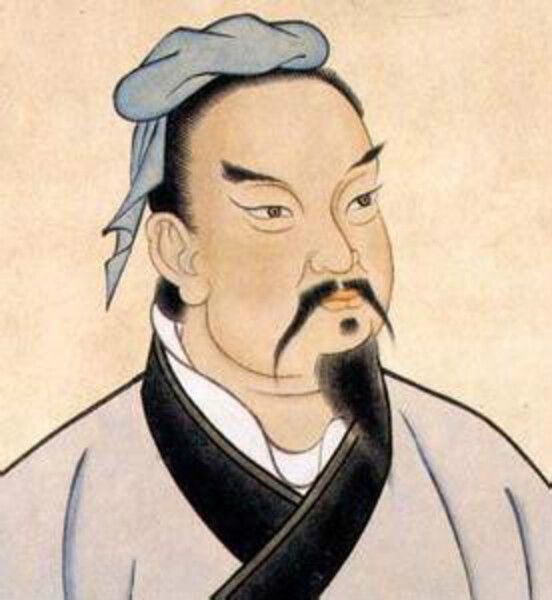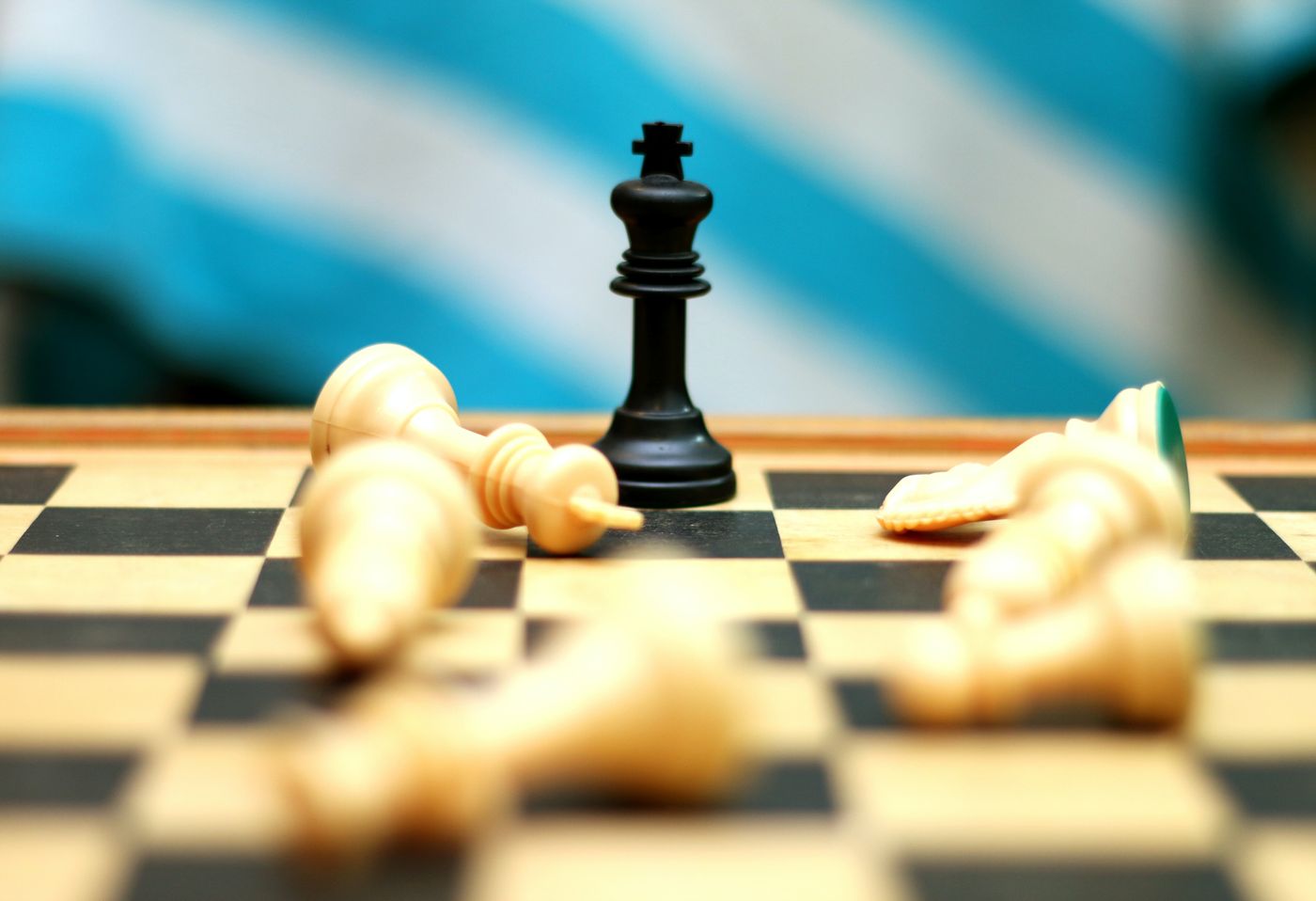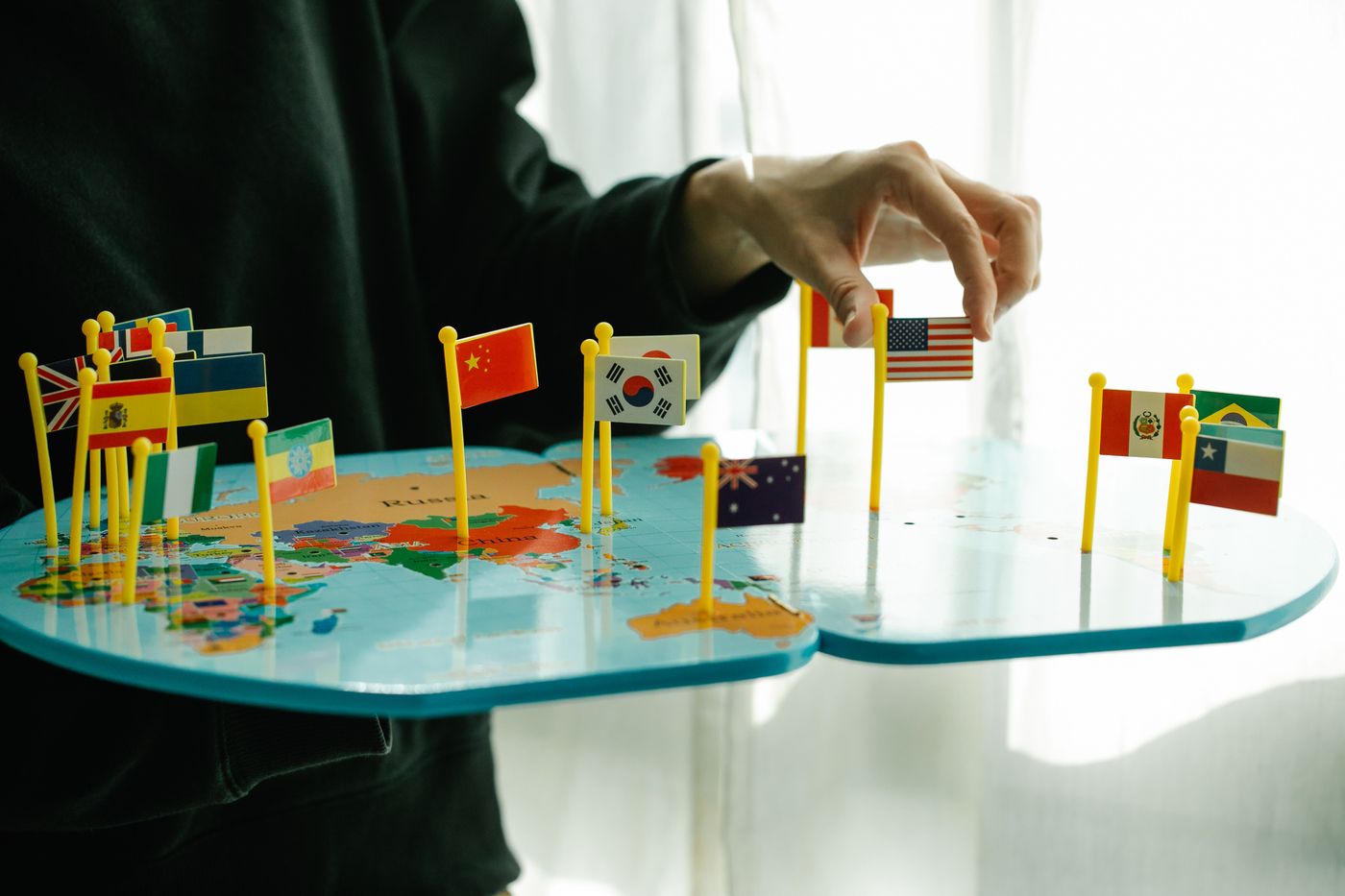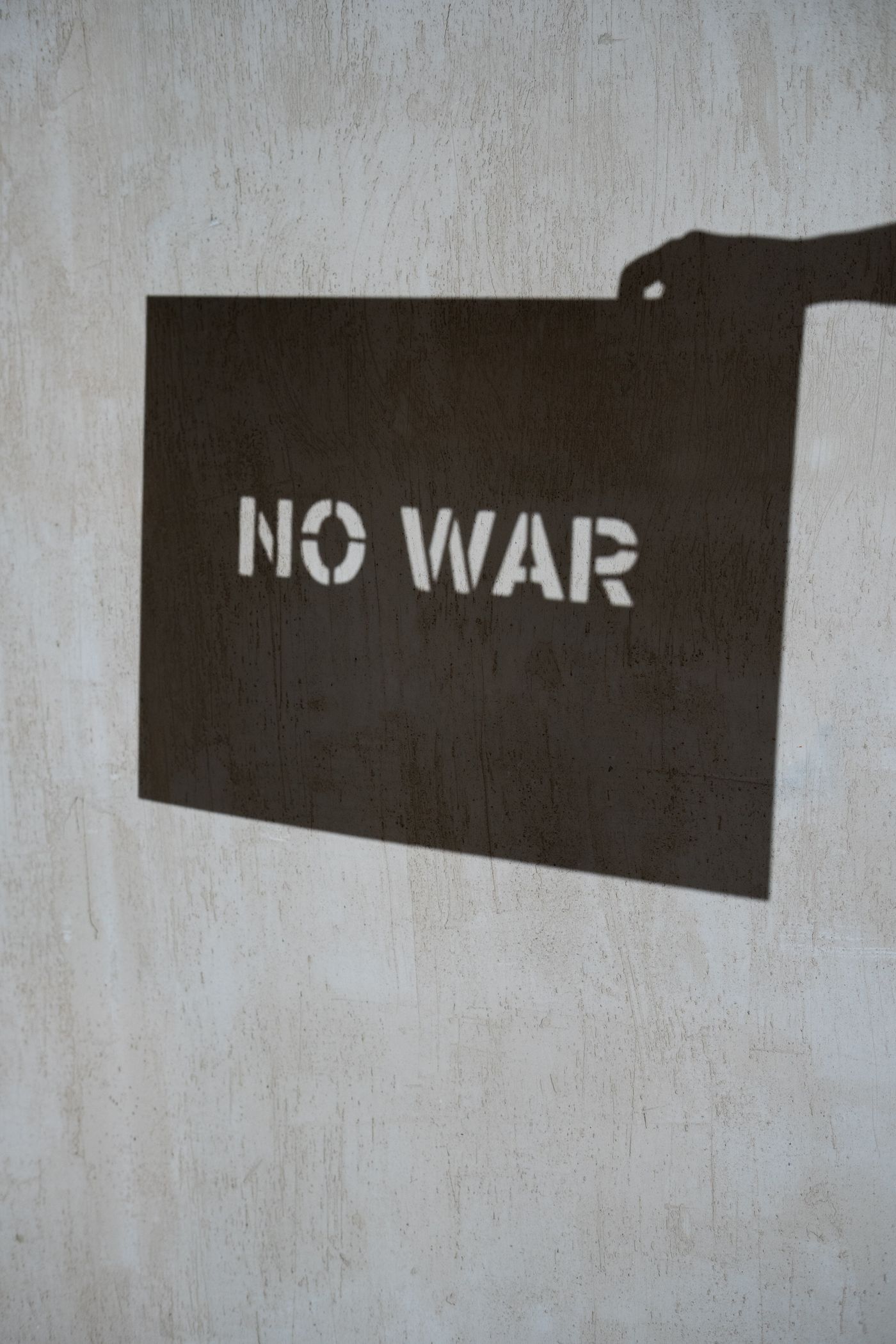Talking about "Sun Tzu's Art of War", although it is teaching you to fight, but it is anti-war!
Today, I want to talk about Chinese philosophy, and I took the lead in choosing the "strategic master" among the hundreds of scholars (many scholars), and I want to talk about Sun Tzu's classic book "The Art of War", what exactly is it writing about? Woolen cloth?
Why do you want to write about this topic? The reason is that Ukraine and Russia went to war in February, so I would like to share the thoughts of the strategist and also my own. In addition, because the heat is there, of course you have to take advantage of the heat (playing on the topic)!
Anyway, let's get started!
🙋♀️ What is "Sun Tzu's Art of War" talking about, teaching you to fight with others?
"Sun Tzu's Art of War" is also known as "Sun Tzu", "Wu Sun Tzu's Art of War", "Sun Wu Art of War", "Wu Jing", "Bing Jing", all of which are talking about the same book, and the following all use "Sun Tzu's Art of War" to explain .
So what is this book about?
As the name suggests, because it is the art of war, it is a book that teaches you to fight. "Sun Tzu's Art of War" has a total of 13 chapters, and there is a chapter at the end that focuses on "questions and answers". And these thirteen chapters explain various issues of war, and the "theory and practice" of war are included in it . It can definitely be said to be a very powerful book.

The book "The Art of War of Sun Tzu" has a very profound influence on later generations. It is not only a classic of "strategic masters" among the hundreds of schools of thought, but also one of the earliest military books in the world. You can definitely find a lot of information on the Internet. In addition to having a very significant impact on the fighting and development of wars in later generations, "Sun Tzu's Art of War " also has an impact on some "games" after the change of times, helping the design of the game. In addition, this book was even translated abroad in 1905 , so there are many fans of this book.
So who is the doer?
I believe that everyone has heard of "grandson" more or less, and these two words are greatly used in the title of the book, so it may be difficult not to know it. It is generally believed that Sun Tzu's Art of War was written by Sun Tzu in 515-512 BC. As for the author, there is some controversy: because the book was lost at the end of the Eastern Han Dynasty, some scholars pointed out that the book was not written by Sun Tzu, or that they completed the book together with others. However, I think that most people still think that it was written by Sun Tzu.

So what does this book actually tell you? I believe that you may have heard some classic sentences in the book, but you have not had a deep understanding of them, so I will talk about them in the next chapter.
📚 What does Sun Tzu's Art of War say? Introduction to Three Classic Sentences
Just said, "Sun Tzu's Art of War" has a total of 13 chapters, plus the last chapter of the question and answer chapter, and it is 14 chapters. In the middle, war and the art of war are explained incisively and vividly, from the truth and logic of war to how to actually "deal with the enemy's advance and retreat", everything is explained.
Below I want to pick out a few of the more well-known passages and explain them a little bit.
- 💡Know yourself and the enemy, and win a hundred battles
"Know yourself and know your enemy, and you will be victorious in a hundred battles." The original text of this sentence is: "Know the enemy and know yourself, and you will not be imperiled in a hundred battles; if you do not know the enemy but know yourself, you will win one and lose one; if you do not know the enemy but do not know yourself, you will be imperiled in every battle."
It means that if you clearly grasp the situation, mentality and other factors of yourself and the enemy, you will not lose in a hundred wars; if you know yourself but not the opponent, you will win and lose; if you don't know yourself, you also know the enemy. Fang, then every war must be lost.
Strictly speaking, this sentence is a bit misrepresented. Originally, it was "knowing your enemy and knowing yourself, and you will not be imperiled in a hundred battles." You might say, if you don't lose, don't you win? But in fact, Sun Tzu is not very supportive of war, and has his own definition of "victory", as detailed in the next paragraph of this article.
If I insist, the use of victory here is not completely wrong, but it is indeed different from the original text.

- 💡Victorious soldiers win first and then fight, defeated soldiers fight first and then win
"The victorious soldier wins first and then fights, the defeated soldier fights first and then seeks victory." This sentence is directly interpreted literally, meaning that the victor first gains an advantage and then fights with others; the loser is Anxious to fight others, wanting to claim victory.
The reason why the victor can win is because he knows how to command the army, and he is well prepared before the war, and he is not reckless to attack the enemy. Before the war, there are sufficient preparations, except for those things that you can associate with food and weapons at a glance, I think what Sun Tzu is referring to is more "intangible".
In the first sentence of this chapter "the so-called good fighters in ancient times are better than those who are easy to win". To put it simply, victors often defeat easy-to-conquer foes. I know this sounds like crap, and when looking at it, it is. But the point is not here. Sun Tzu wants to use this sentence to point out that we need to find out the weakness of the enemy, and find a way to improve our advantages and make the enemy weak.
Only in this way can we defeat the enemy.
Here again, the narrative about victory must be mentioned again, because the definition of victory for Sun Tzu is not the same, so after I understood this, I realized that this sentence can also be interpreted as another meaning. Of course, in this chapter, Sun Tzu is mainly talking about the military shape, so I decided to leave it to the next paragraph.
- 💡 Soldiers, the major events of the country, the place of life and death, the way of life and death, must be observed
"The soldier, the important event of the country, the place of life and death, the way of life and death, must be observed." From "The Beginning of the Plan", this chapter is the first chapter of "Sun Tzu's Art of War".
And what does the first sentence mean? The first paragraph at the beginning of Sun Tzu's Art of War directly shows us that "war is a major event of the country, a place where people live and die, and a place where people live. Therefore, we must pay attention to it, analyze it carefully, and observe it carefully."
I think this is correct. War is not just a game played by the "leaders". It affects the lives of tens of thousands of people, so it must be taken seriously.

The above is just a part of the explanation. I plan to do an article later to explain the modern application of Sun Tzu's Art of War in detail.
🤔 The grandson who taught war is actually against war?
If you think Sun Tzu's Art of War is a book that teaches people how to fight, then he must support fighting, then you are wrong. In very simple terms, the art of war taught by Sun Tzu is a way of "passive warfare".
But in fact, passively speaking, it is not very accurate. More strictly speaking, it is Sun Tzu's definition of victory that is different from ordinary people. how to say? If you are an ordinary person, you may think that winning the enemy on the battlefield is a victory on the battlefield, that is, a victory.
But not so for the grandson. Let's look at the following example: " Sun Tzu said: As for the method of using the army, the whole country is the best, and the breaking of the country is the second; In the top, the broken soldiers are second; the whole army is the top, and the broken army is second. Therefore, a person who is victorious in a hundred battles is not a good person; a soldier who subdues without fighting is a good person. ” (Conspiracy and Attack)
The above paragraph can be divided into two parts, one is that the previous paragraph seems to be the same as the sentence, and the other is that the latter paragraph is not very understandable. Let's talk about the previous paragraph first. Although it is classical Chinese, it is actually relatively easy to understand. This paragraph uses a lot of situations to illustrate, but in fact they all illustrate the same thing: that is, saving one's own life is more important than killing the enemy on the battlefield; protecting the overall situation of the country is more important than breaking the enemy country.
And the latter sentence is: "Therefore, a hundred victories in a hundred battles are not a kind of good person; a soldier who subdues a person without fighting is a kind and good person." Not the most powerful person , not the "master" in the war. The latter sentence shows that if you can make the enemy succumb to you without war, then you are a truly powerful person, a real master.
Why do you say that? The reason is that for Sun Tzu, war is a major event for the country, and in any case, protecting the country must be the first and most important thing . Therefore, if you lose carelessly, of course it will be miserable; and even if you win the enemy, but "injuring the enemy one thousand, you lose eight hundred" is also a loss . This is a point that cannot be ignored, so don't fight. is the best policy.

Because Sun Tzu did not support war, even if he wanted to fight, it was really a last resort. Therefore, more than half of the content of this "Conspiracy and Attack" is actually saying that defending the country is more important, and fighting wars can be avoided as much as possible.
All in all, for Sun Tzu, "winning without a fight" is the real victory. Strictly speaking, Sun Tzu does not support war.
💪 Be cautious in the face of war, you have to fight!
At present, the full text of "The Art of War of Sun Tzu" can be found on the Internet. Although there are thirteen chapters in length, I personally don't think there are too many. Every chapter is the essence, and it is worth savoring carefully.
In "Sun Tzu's Art of War", in addition to describing the details of the war from pre-war to post-war, and how to use various methods to help you win, it also describes the theory of war, or discusses the "essence" problem, which is what I think this book is A point worth seeing.
For example, it attaches great importance to the overall situation of the country and the lives of the people, rather than the courage to kill the enemy on the battlefield, and the blood flows into rivers and the like. This book preaches to be cautious about war, and never try it unless the situation forces it, because once a war begins, it is very difficult to be unscathed. I think the logic of this book is that there is a very small chance of a win-win situation, and it's mostly a lose-lose situation.

Maybe it’s because of my living environment. I haven’t experienced war since I was a child (actually not that old), and in this day and age, the concept of “entity” is slowly being phased out. I really can’t imagine that there will be war like this. , let alone imagine the scene of war, the damage will be very large.
The Ukrainian-Russian war in the past February has definitely been a shock to me. I never imagined that any country would start a war. And I have also expressed my thoughts, in the war, who are evil and who are innocent? Are those people who are not known and unknown, the most pitiful victims?

I don't know how to put it, but when I first saw Sun Tzu's Art of War, the image of "an ancient man looked at the battlefield and sighed deeply" came to my mind. I totally feel like my grandson is just too lazy to fight with you and can't understand the thoughts of people who want blood all day long. But because we still want to live, we have to think of a way to face it, otherwise we will wait for the enemy to invade?
As for whether the grandson really thinks this way, I don't know.
In any case, I very much agree with the argument advocated in Sun Tzu's Art of War: unless the situation forces it, don't touch the war lightly. Even if you touch it, stay calm and make careful plans. Of course, winning without a fight is the real victory.
Come to the end of the article. This article only briefly introduces the classic "Sun Tzu's Art of War", explains some paragraphs, and explains Sun Tzu's thoughts on "war". Due to limited space and limited time, this article ends here. If you are interested, I will do a few more articles in the future. In addition to explaining the military family and Sun Tzu's Art of War, I also hope that the principles in it can be practically transformed into methods that modern people can use, and applied in daily life.

🔥 If you like the article, you can help me clap your hands, or join the "Burning Philosophy" to burn life around the fireplace.
📢 I'm still appearing in various places , go find my traces and follow me!
🤑 Paying for the promotion of knowledge is the biggest encouragement, because I love money (laughs).
📝 The elf has collected the articles, the special articles are here , and the waste articles that are usually written easily are here.
Like my work? Don't forget to support and clap, let me know that you are with me on the road of creation. Keep this enthusiasm together!


- Author
- More